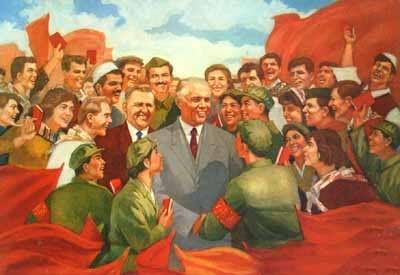source: Albanian Daily News
In the recent years something is moving. The Belt and Road Initiative of the Chinese government has raised serious interest in Albanian governmental circles. They hope Albania will benefit from infrastructural investments from the Chinese government through its companies. In April Chinese vice Prime Minister Zhang Gaoli visited Albania, and intergovernmental commissions are being formed to look for potential fields of economic and social cooperation. In May the Chinese government granted Albania 2 million dollars for the reconstruction of the National Theatre of Opera and Ballet and the Popular Ensemble.
In 2016 the oil extraction industry, previously controlled by the Canadian Bankers Petroleum, was sold to the Chinese company Geo-Jade Petroleum for 384.6 million Euros. They promised to improve the technology of oil extraction in Albania, and to employ more Albanian workers. In 2017 another Chinese company, China Everbright, bought the right to administer the only civil airport of Albania, Mother Theresa Airport from its German concessionaries. Due to these recent economical interventions Chinese investments are in the first place among foreign investments in Albania. This has led to another economical leap, so that the trading transactions between China and Albania are rated the second or third most important in Albania, after Italy and, probably, Germany.
There are 150 Chinese enterprises registered in Albania nowadays. Smaller Chinese companies are investing in other extractive sectors of the Albanian economy. For example, a Chinese company has been sub-contracted by the Albanian Albchrome to dig for chrome in the mines of Bulqiza, one of the last remaining industrial towns of Albania. Nevertheless in February this company became notorious because of the death by suffocation of three Chinese workers inside the mine.
On the other hand, there is talk even about bringing Chinese tourists in Albania. One attaché of the Chinese embassy in Tirana said in a recent interview that there’s a lot of curiosity about Albania from people above 50. In the seventies they were subjected to a strong cultural influence from Albania. For example, “Kinostudio Shqipëria e Re” movies were very popular in China, and there’s a growing interest in visiting Albania’s movie sites etc.
Nevertheless, despite the promises and prospects, there is yet no boom of Chinese investments in Albania. Even the ones that are mentioned above go mostly to the extractive sector, while the industrial and manifacturing sectors are untouched. While these investments could be important in diversifying the economic dependency of Albania from EU members like Italy and Greece, they nevertheless contribute almost nothing to the emergence of modern industrial base in Albania. In the sixties and seventies the Chinese brought tractors and their most modern equipments (although they lagged behind Western technology). Currently they are extracting oil and chrome. There’s no evidence that Chinese companies treat workers any better than their competitors, or that they refrain from underground transactions with the corrupted Albanian state administration.
Politically speaking, despite the diplomatic cordiality and the common interest in economic exchange, Albania and China remain far apart on important issues. Albania’s government’s strong commitment to the NATO and US foreign policy is an obstacle to political rapproachement. Likewise, the rejection of the Chinese government to recognize the Republic of Kosova constitutes another serious problem. Nonetheless, despite some minor rumours in the early 2000s about recognizing Taiwan, Albania’s foreign policy of recognizing the People’s Republic as the sole representative of the Chinese people has remained unchanged.
There are a few hints that the current economic approach of China to Albania has raised some political concerns in the US and EU. But there’s no prospect of shifts in Albania’s foreign policy in the foreseeable future, despite the fact that EU closing doors to further enlargement can trigger the Albania’s political elite to search for potential way-outs. The strong Western alignment of the Albanian political elite, backed by an ideologically-biased cultural Westernism of common people – which sometimes takes the form of deriding Chinese and other Eastern identities – means that relations could develop seriously only on the economic level.
Source link : https://lefteast.org/albania-and-china-the-reemergence-of-an-old-friendship/
Author :
Publish date : 2017-11-01 07:00:00
Copyright for syndicated content belongs to the linked Source.
